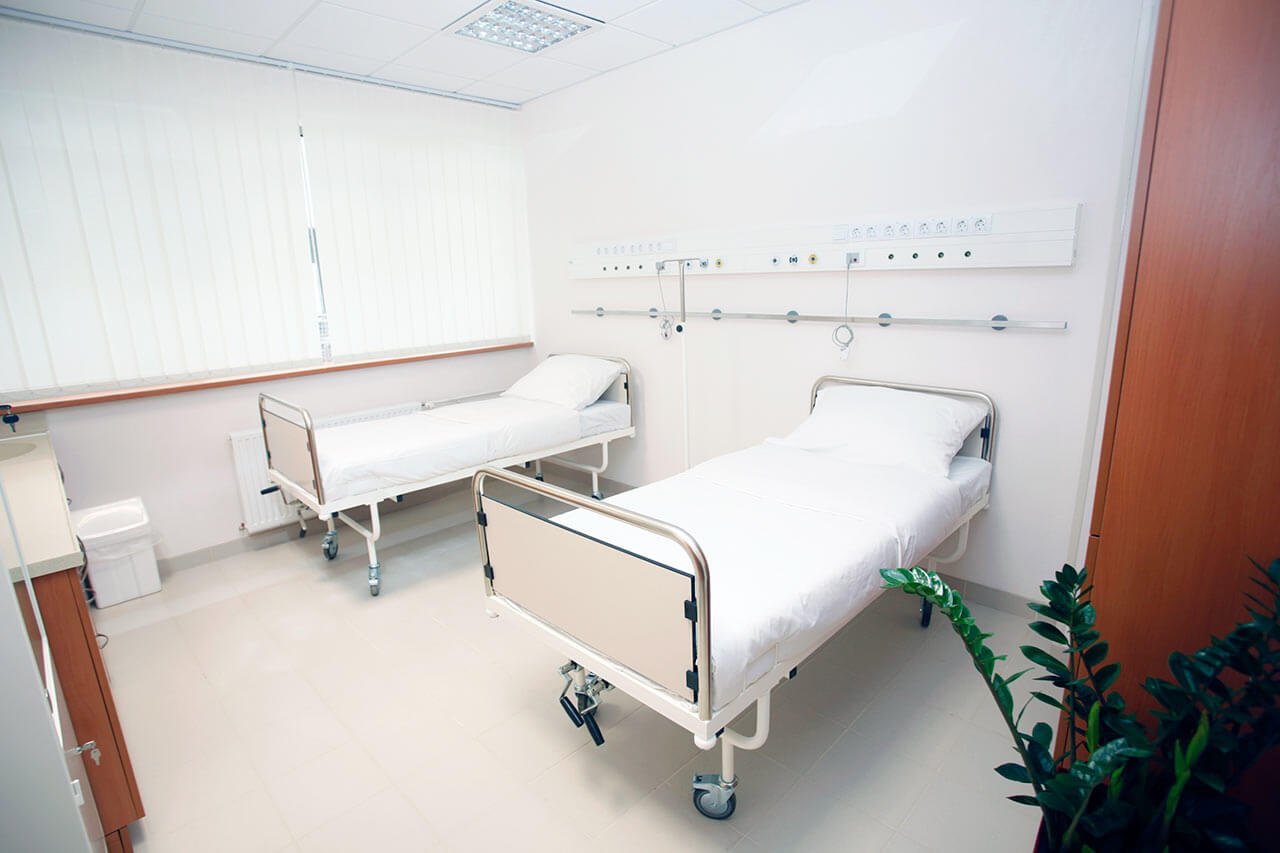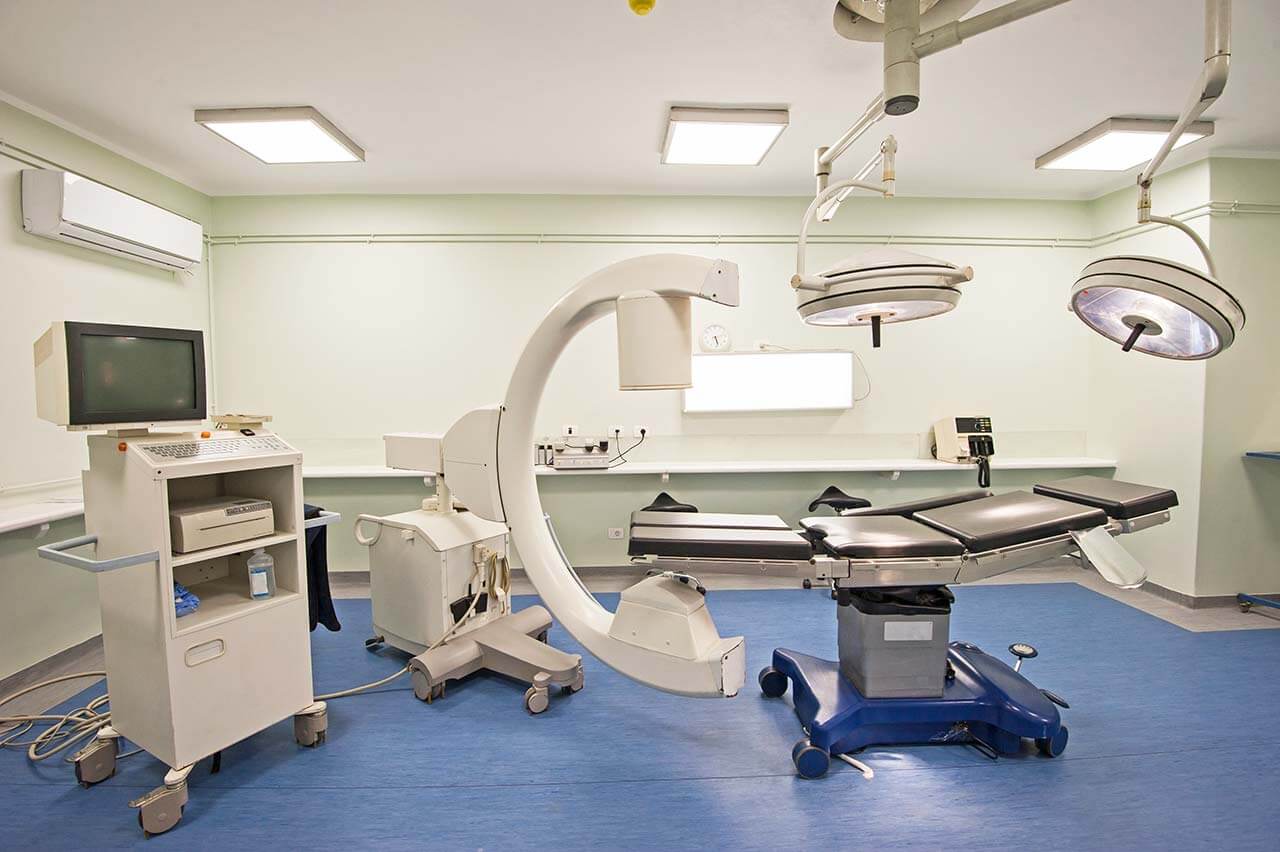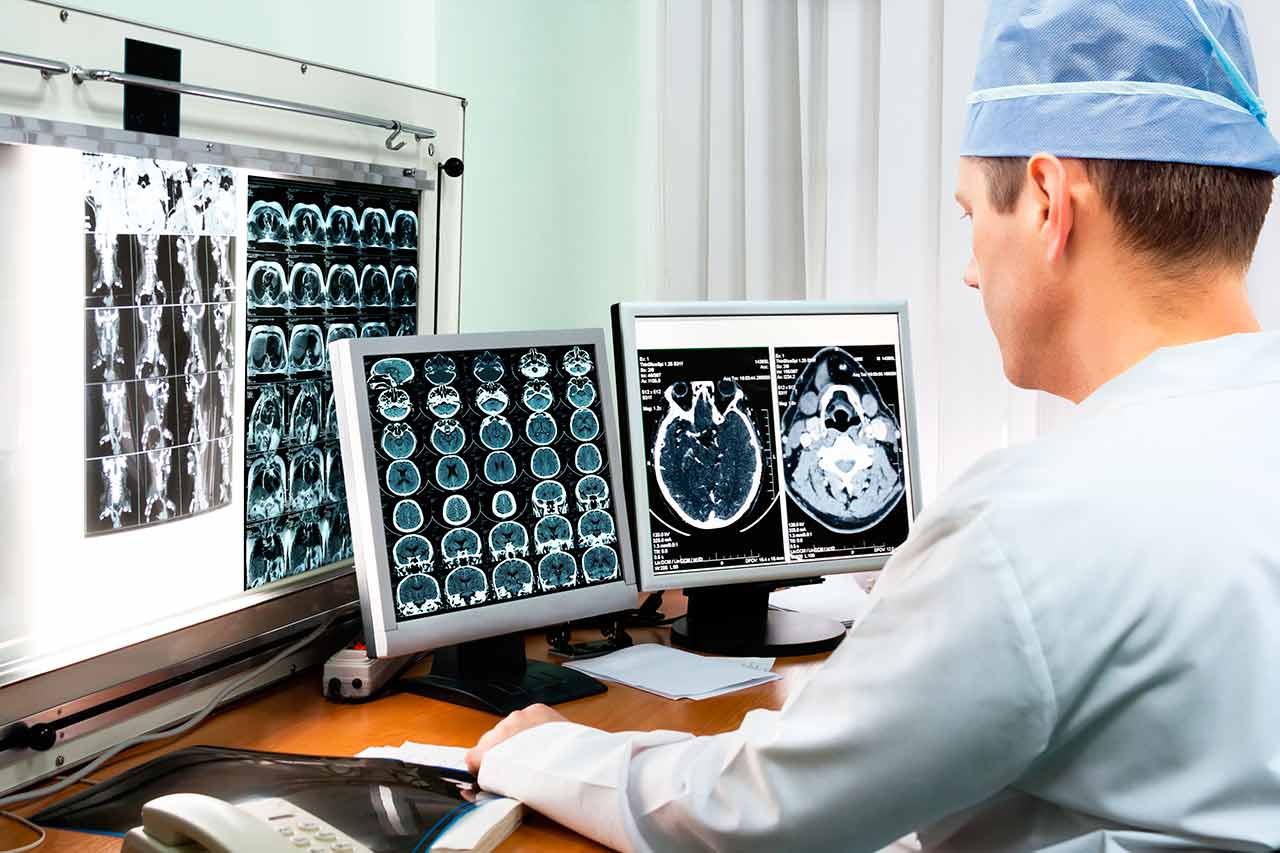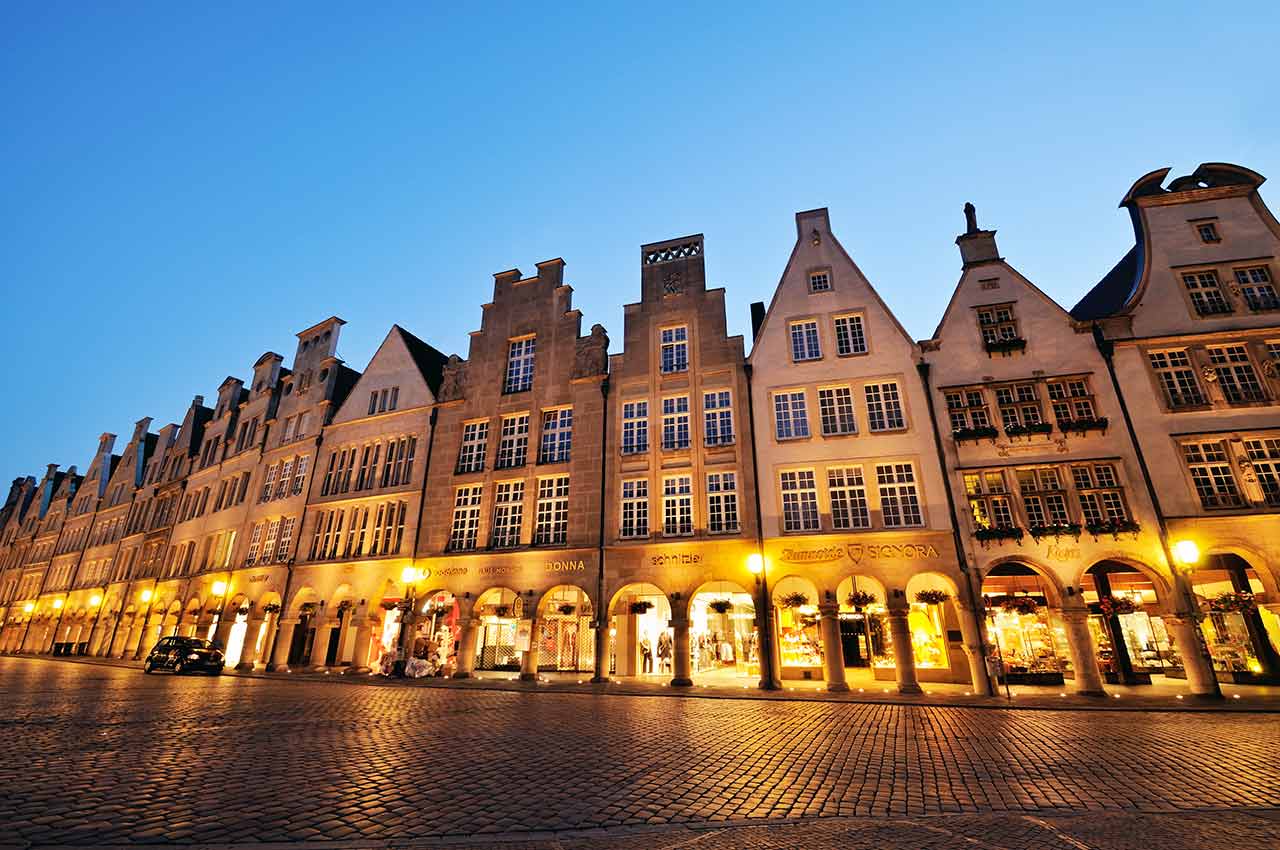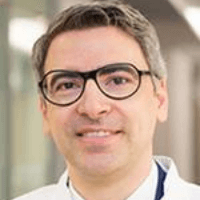
The program includes:
- Initial presentation in the clinic
- clinical history taking
- review of medical records
- physical examination
- laboratory tests:
- complete blood count
- biochemical analysis of blood
- Lipid metabolism (HDL/LDL, cholesterol,
triglycerides Lip(a), homocysteine) - blood coagulation analysis (aPTT, PT, INR)
- inflammation indicators (CRP, ESR)
- metabolic status (uric acid, total glucose, HbA1c)
- cardiovascular disease risk markers
- kidney function test (creatinine, urea)
- color doppler echocardiography
- color doppler sonography of renal arteries
- duplex renal arteries
- CT/ MRI-angiography of renal arteries
- preoperative care
- selective open repair
- symptomatic treatment
- control examinations
- the cost of essential medicines and materials
- nursing services
- full hospital accommodation
- developing of further guidance
Required documents
- Medical records
- Doppler ultrasonography / duplex scanning of the renal arteries (if available)
- MRI/CT scan of the abdomen and pelvis (if available)
- Renal angiogram (if available)
Service
You may also book:
 BookingHealth Price from:
BookingHealth Price from:
About the department
The Department of Vascular and Endovascular Surgery at the University Hospital Muenster offers the full range of services in these fields and is one of the largest medical institutions of this kind in Europe. A distinguishing feature of the department is the unique competence in the treatment of especially severe and rare vascular diseases. The department has a modern outpatient operating room, as well as a hybrid operating room, in which the patients are provided with the most effective and sparing treatment, if possible. Depending on the complexity of the surgery, the surgical treatment is carried out either on an inpatient or outpatient basis. The department is headed by Prof. Dr. med. Alexander Oberhuber.
The department's specialists provide treatment to 6,000 outpatients and more than 3,500 inpatients annually. More than 3,500 operations are performed here, as well as about 10,000 imaging examinations per year. The most sparing treatment method is selected for each patient.
The department's physicians are also actively involved in the development of new surgical treatment methods. As early as in 1996, the endoluminal catheter techniques were introduced into the department’s service range, which helped to optimize the treatment of patients with vascular diseases. Surgery and catheter intervention perfectly complement and combine with each other. Thus, the department's surgeons often manage to replace extensive intervention with minimally invasive ones. However, in some cases, the best treatment option is classical surgery.
The department specializes in the treatment of the following vascular pathologies:
- Carotid stenosis
- Aneurysms
- Aortic aneurysms
- Iliac artery aneurysms
- Popliteal artery aneurysms
- Rare types of aneurysms
- Peripheral artery occlusion (circulatory disorders)
- Venous diseases
- Varicose veins
- Inflammatory venous diseases
- Deep vein thrombosis
- Tumor diseases with vascular lesion (interdisciplinary therapy)
- Injuries with vascular lesions (interdisciplinary therapy)
- Formation of vascular access for dialysis, chemotherapy, etc. (interdisciplinary)
- Other diseases
Diagnostic and therapeutic range of the department includes:
- Diagnostic examinations
- Doppler ultrasound
- Magnetic resonance imaging
- Examination of blood rheological properties and venous occlusion plethysmography
- Colour duplex sonography
- Treadmill ergometry
- CT and MRI angiography
- Digital subtraction angiography
- Therapeutic methods
- Thrombectomy
- Thromboendarterectomy
- Bypass surgery
- Implantation of interponates (vascular lintels)
- Correction in vascular transposition
- Balloon dilatation in stenoses
- Stent implantation
- Implantation of prostheses, stent grafts
- Hybrid interventions
- Creation of a shunt between the right and left femoral artery in combination with percutaneous transluminal angioplasty/iliac artery stenting (extensive operations on the abdominal aorta may be avoided)
- Thromboendarterectomy of the femoral artery in combination with percutaneous transluminal angioplasty/iliac artery stenting (complex bypass surgery may be avoided)
- Treatment of bilateral vascular occlusion during a single operation
- Hybrid Interventions in acute vascular occlusions
- And other hybrid interventions
- Other methods of diagnostics and treatment for vascular diseases
Curriculum vitae
Education
- 07.09.2010 Professional certification in Vascular Surgery.
- 2007 - 2010 Assistant Physician in the Department of Thoracic and Vascular Surgery at the University Hospital Ulm, Surgery Center.
- 2006 - 2007 Assistant Physician, Department of Vascular Surgery, Thüringen-Kliniken Georgius Agricola GmbH (Prof. Hutschenre), training for a Medical Specialist in Vascular Surgery in accordance with the new regulations of continuing education.
- 2004 - 2005 Professional Training in accordance with the new regulations of continuing education, Thüringen-Kliniken Georgius Agricola GmbH (University Hospital Jena), Department of Abdominal Surgery, Department of Vascular Surgery, Department of Emergency Medical Care, Intensive Care and Anesthesiology.
- December 2003 State Examination, Bologna (Italy), admission to medical practice in Italy.
- 2003 Intern, Sterzing Hospital, Italy.
- January 2003 Doctoral thesis defense. Subject: "Study of the effect of the antiproliferative drug rapamycin and phosphodiesterase cyclic nucleotides on neointimal hyperplasia in venous shunting on an animal mouse model", Department of Cardiac Surgery, University of Innsbruck (Austria), Prof. Bonatti.
- 1997 - 2003 Study of Human Medicine, Faculty of Medicine, University of Innsbruck (Austria).
Research Activities
- Since 2007 Experimental researches: study of ischemic perfusion on animal models, MRI examination of carotid artery plaques; clinical examinations: endovascular therapy of aortic abnormalities, injuries of the thoracic organs.
- 2004 - 2007 Development of a retrospective examination in the Department of Vascular Surgery at the Thüringen Kliniken Georgius Agricola gGmbH Saalfeld.
- 2003 Intern of the Sterzing Hospital, publication and preparation of a retrospective clinical examination.
- 2001 - 2003 Research work in the Department of Cardiac Surgery:
- Participation in the creation of a Research Group and creation of an international animal model.
- Study and safe introduction of the microsurgical animal model.
- Development of vascular biological organ model.
- Participation in the planning and determination of the experimental strategy.
- Special histological methods, such as paraffin and frozen blocks, processing tissue samples, histochemical and immunohistochemical staining, as well as monitoring and assessment of the results.
- Approaches to the treatment of neointimal hyperplasia using various techniques for gene transfection (safety level 2).
- Processing of genetically modified organisms in a laboratory with a safety level 2.
- Participation in the planning and construction of a new cardiac surgery laboratory in Innsbruck.
Additional Qualifications
- 2006 Certified Medical Specialist in Sclerotherapy (Austrian Society of Phlebology and Dermatological Angiology).
- 2006 Theoretical bases of the specialty, radiation protection in emergency radiography and intraoperative angiography.
- 2006 Basic and advanced course on duplex ultrasonography of peripheral and extracranial brain vessels.
- 2006 Theoretical bases of the specialty, rescue service in Germany.
- 2005 Basic surgery examination (foederatio medicorum chirurgicorum helvetica).
- 2002 In-depth study of anatomy.
- 2002 Optional training in Plastic Surgery.
- 2002 Specialized course on animal experimentation with Prof. Dietrich (qualification of Animal Research Director, Austria).
- 1997 - 2003 Internship in Brunei, Bolzano, Matera (I), Innsbruck (A).
Awards
- 2009 Aortenpreis Award of the German Society of Vascular Surgery.
- 2009 Rene van Dongen Poster Prize of the German Society of Vascular Surgery.
- 2008 Research Scholarship of the Society for Vascular Surgery (Dr. F. Simon Working Group).
- Hans and Blanca Moser Foundation Scholarship for support in the training of Medical Specialists in the treatment of cancer and heart diseases.
Membership in Professional Societies
- Since 2009 European Society for Vascular Surgery (ESVS).
- Since 2008 German Society of Vascular Surgery (DGG).
Photo of the doctor: (c) Universitätsklinikum Münster
About hospital
According to the Focus magazine, the University Hospital Muenster ranks among the top German hospitals!
The hospital belongs to the most prestigious medical institutions in Germany. The hospital is distinguished by a high professionalism of its doctors, state-of-the-art technological equipment and the availability of the most advanced diagnostic and therapeutic capabilities ensuring the first-class medical services. The hospital integrates more than 30 specialized departments, as well as numerous institutes and centers, thus representing all the specialties of modern medicine. The hospital treats more than 64,000 inpatients and 500,000 outpatients every year, which is an indisputable evidence of the highest quality of medical services.
The medical team of the hospital, consisting of more than 10,000 employers, is committed to preserving the physical health of patients, providing them with psychological support and compassionate attitude throughout the entire therapeutic process.
The hospital has succeeded in all specialties of medicine, however, main areas of its specialization include oncology, treatment of cardiovascular, neurological diseases, transplant medicine, psychiatry and psychosomatics, pediatrics with a special focus on rare diseases in children, traumatology, orthopedics, prenatal medicine, and reproductive medicine. In addition, key importance is given to scientific research and training of medical students, so that the specialists of the hospital make a momentous contribution to the development of medicine as a whole.
Photo: (с) depositphotos
Accommodation in hospital
Patients rooms
The patients of the University Hospital Muenster live in single or double rooms. The rooms are made in bright colors and modern design. Each room has an ensuite bathroom with shower and toilet. The standard room includes an automatically adjustable bed, a bedside table, a table and chairs for receiving visitors, a telephone and a TV. The hospital offers access to the Internet. If desired, the patient can also stay in the enhanced-comfort room.
Meals and Menus
The patients of the hospital are offered a tasty and balanced three meals a day: breakfast, lunch and dinner. The menu always features diet and vegetarian dishes. If for any reason you do not eat all the food, you will be provided with an individual menu. Please inform the medical staff about your dietary preferences prior to the treatment.
Further details
Standard rooms include:
Religion
Religious services are available upon request.
Accompanying person
During the inpatient program, an accompanying person may stay with you in a room or at the hotel of your choice.
Hotel
During the outpatient program, you can live at a hotel of your choice. Managers will help you to choose the most suitable options.
The hospital offers a full range of laboratory tests (general, hormonal, tests for infections, antibodies, tumor markers, etc.), genetic tests, various modifications of ultrasound scans, CT scans, MRI and PET / CT, angiography, myelography, biopsy and other examinations. Treatment with medications, endoscopic and robotic operations, stereotaxic interventions is carried out here, modern types of radiation therapy are also used. The hospital offers patients all the necessary therapeutic techniques.
- Stereotactic radiotherapy, including intracranial one
- Thulium and holmium laser enucleation of the prostate
- HIPEC for peritoneal cancer
- Imlantation of mechanical heart support systems
- Assisted reproductive technologies
These are arthrosis and sports injuries of the joints, benign neoplasms and malignant tumors of various localizations, spinal injuries, osteoporosis, benign prostatic hyperplasia, urolithiasis, inflammatory bowel disease and other pathologies.
- Traumatology and hand surgery
- Urology
- General and abdominal surgery
- Cardiology and cardiac surgery
- Obstetrics and gynecology
The hospital's team consists of more than 10,000 highly qualified employees.
